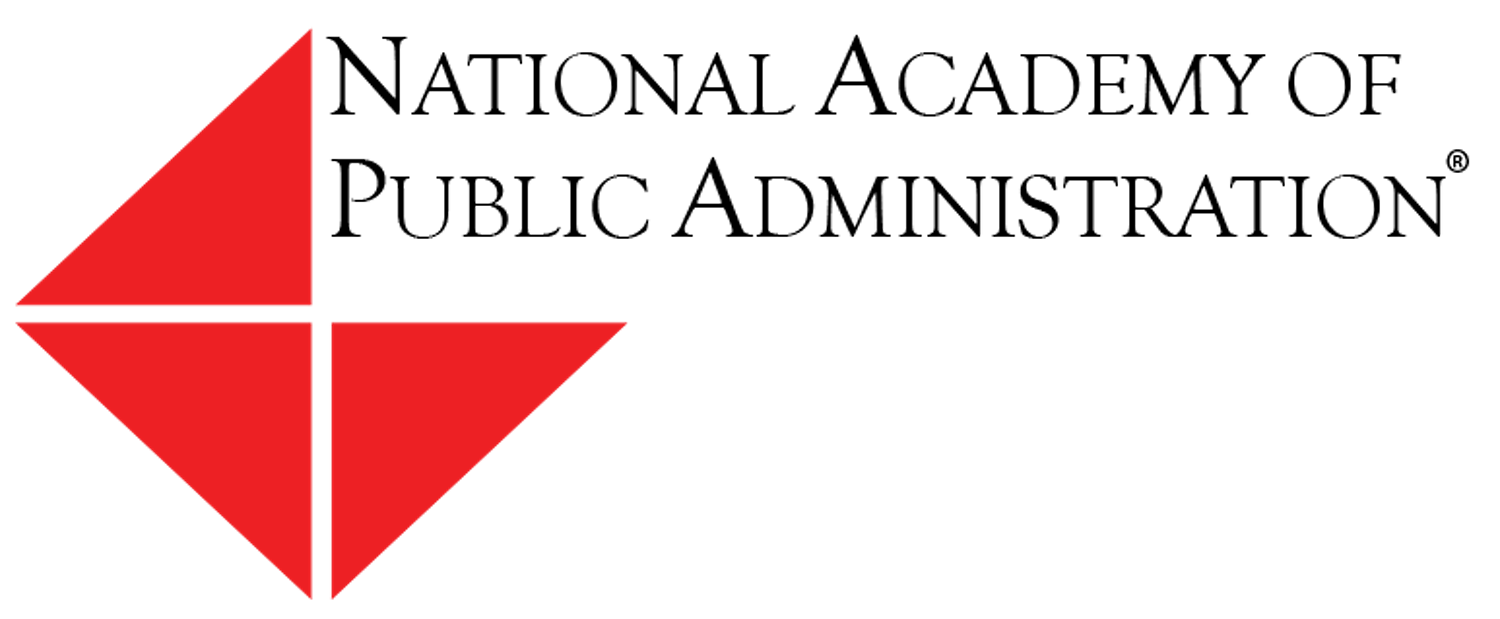
The National Academy of Public Administration Releases Report on Intergovernmental Responses to COVID-19 Pandemic
Contact:
Betsy Holahan
bholahan@greatpointstrategies.com
Post Date: April 11, 2022
The National Academy of Public Administration Releases
Report on Intergovernmental Responses to COVID-19 Pandemic
Working group offers 37 actionable recommendations in four intergovernmental
areas designed to facilitate the nation’s response to the next pandemic
WASHINGTON, D.C. – As the nation enters its third year of the COVID-19 pandemic, a working group of the National Academy of Public Administration today released a new report, “Intergovernmental Dimensions of the COVID-19 Responses and Consequences,” that examines the varied and sometimes conflicting governmental responses to the pandemic and outlines 37 actionable recommendations across four intergovernmental focus areas to help improve the nation’s response to the next pandemic.
“The response to the COVID-19 pandemic has highlighted both strengths and weaknesses in the nation’s ability to respond to a novel global infectious disease threat,” said Kenneth W. Kizer, MD, MPH, and Richard Callahan, DPA, Co-Chairs of the Academy Working Group on the Intergovernmental Dimensions of the COVID-19 Pandemic and Academy Fellows.
“One of the defining characteristics of the response was the disparate alignment of public health and other interventions across the federal, state and local levels of government,” said Kizer and Callahan. “This offers an unprecedented opportunity to examine federalism in action, and we hope this is the first of many attempts to understand better how government jurisdictions across the spectrum of government can facilitate the nation’s response to the next pandemic, which is not a matter of if, but instead only a matter of when or how soon.”
The Academy convened the working group in the spring of 2021 to better understand the strengths and vulnerabilities of the intergovernmental response to the pandemic, and to promote dialogue about them. The working group focused on four topical areas: COVID-19 Testing, Non-Pharmaceutical Interventions, COVID-19 Vaccine Distribution, and Cross-Cutting and Over-Arching Issues, which included data tracking and supply chain management.
For each section, the report offers actionable recommendations developed by independent sub-groups within the larger working group and often intended to be a starting point for further discussion or analysis of the intergovernmental pandemic response, as well as enhance future responses. The 37 actionable recommendations include, but are not limited to:
- The U.S. Department of Health and Human Services (HHS) should establish an early warning testing system for public health responses for airborne transmitted pathogens in settings likely to be first impacted, such as airports handling international travelers, cruise ships, military installations and health facilities serving high-risk populations.
- HHS should request that an expert panel, such as one from the National Academy of Public Administration, be convened to develop recommendations on effectively promoting transparency and accountability in intergovernmental public health responses.
- HHS should continue to fund a major public health program on vaccine acceptance, including tracking of vaccination uptake, tracking of anti-vaccine activities, research into strategies to counter vaccine hesitancy, and funding for state and local outreach and communication activities.
- HHS should seek ways for the Strategic National Stockpile (SNS) to have a working capital fund that reduces reliance on new federal appropriations, to ensure it is prepared to respond quickly to public health emergencies.
- HHS should fund research on promoting public trust in the government’s response to infectious disease emergencies, including the use of NPIs for infection risk reduction and vaccine use.
To read the full report, including specific findings and recommendations, click here.
About the National Academy of Public Administration
Chartered by Congress to provide non-partisan expert advice, the Academy is an independent, non-profit, and non-partisan organization established in 1967 to assist government leaders in building more effective, efficient, accountable, and transparent organizations. Learn more at www.napawash.org
###